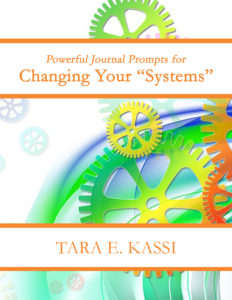Dr. W. Edwards Deming, known as “the master of continual quality improvement,” concluded that approximately 95% of the problems or difficulties lie in the system not with people. Deming discovered that it is futile to attempt to change people without changing the system because “A bad system will beat a good person every time.”
My first reaction was wholehearted agreement. Yes, it is the system’s fault! But the more I thought about it, my second reaction was a sense of despair.
Systems, particularly large systems, feel unmovable. Change comes slowly, if ever. If nothing is going to change any time soon, does it really come down to these two choices? Is this a system I can work within? and How much can I tolerate?
If you do not know how to ask the right question, you discover nothing. -W. Edwards Deming
I had to frame this question differently because this was depressing news.
Asking a Different Question
What are systems anyway?
Knowing that a system is really just a group of interconnected parts that are working together to form a larger, unified whole, I looked for “systems” in operation in everything I did.
As a teacher and an administrator, I had no desire to take on the Department of Education or the local school district. What I could change were the “systems” I created.
No longer did this statistic seem hopeless. I suddenly felt empowered.
Putting Deming to the Test
I looked for a frustrating situation that involved other people. Not hard to find.
Parents were complaining the teachers were assigning too many major tests, papers, and projects all due on the same day. Their children could not effectively prepare for them all.
Managing these complaints was taking up too much time.
I reminded teachers to communicate with each other and make sure there were no more than two major exams, papers, or projects on any given day. The problem continued, but now the teachers were arguing with each other over who assigned their test first.
With my new insight about systems, I set up a free shared calendar for teachers to add major exams, papers, and projects. All of the teachers and administration had easy access to the calendar at the click of a button. Teachers found this a much easier way for scheduling those major projects.
Deming was right. When dealing with a problem, look to the “system” before you look to “people.” A small modification to the system made a big difference.
Parents, students, teachers, and administration all received the benefit of no more frustration and a little extra time. A win-win all around!
You Have the Power, You Just Don’t Know it!
The “educational system” or even the “school system” is something that can take a while to change. If you are a classroom teacher, you are the manager/leader of all sorts of systems you have created in your classroom–morning and end of day routines, collecting student work, grading, lesson planning, etc.
If those systems are not effectively or efficiently serving students, you not only have the power, but also the responsibility, to change those systems or create new ones.
If you are facing a situation in which you feel overwhelmed and powerless or you feel like nothing will ever change . . .
Click on the image below to subscribe to my newsletter and
Download my free guide Powerful Journal Prompts for Changing Your Systems.
Make a small modification to a “system” you created and see what happens. What impact did that small modification have? Leave a comment below.

